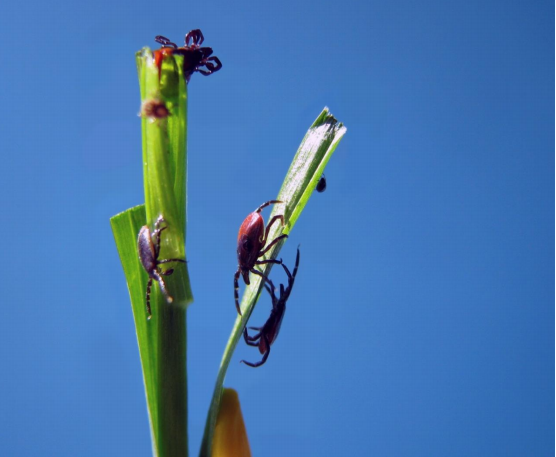THUNDER BAY -- After a record-setting collection of blacklegged ticks in the Thunder Bay area last year, the District Health Unit will try to expand its surveillance program for the insects this year.
Blacklegged ticks, also known as deer ticks, can carry Lyme disease that can be passed on to humans through a bite.
Last year 81 specimens were collected by the health unit between spring and autumn, more than in any previous year.
Ken Deacon, who coordinates the program for the health unit, believes climate change is impacting the prevalence of ticks. "Last year was such a spectacular year, we had the greatest number of ticks ever that were brought in. Spectacular, I guess, in the sense if you're interested in seeing the tick population increase, which most people aren't," he said.
Deacon said that due to the wide swings in weather conditions this past winter, it's difficult to predict the extent of the tick infestation this year, but "because of all the freezing and thawing that we've had, the number could be down this year," while still remaining significant.
There are two elements to the surveillance program.
Passive surveillance sees members of the public bring in ticks found on their bodies or on their pets, and the insects are sent to a lab for testing for Lyme disease.
The active surveillance component involves health unit staff going into the field to drag sheets of white cloth over the ground. That program was fully underway for the first time last year, and failed to pick up any ticks, but Deacon said officials hope to expand the program this year.
Infected ticks have become more common in the Rainy River area, whereas Deacon said the Thunder Bay district was previously "on the edge" of blacklegged tick territory.
As a result of climate change, he feels that's no longer the case. "We'll be well within their distribution and it's only a matter of time before we find a blacklegged tick through active surveillance."
Passive surveillance presents a problem, Deacon said, because "people travel all over the place, We actually had a tick that was submitted to us in February but that was from somebody who had been travelling in southern Ontario during one of their 'heat waves'."
Last year, eight of the 81 ticks that were turned in tested positive for Lyme disease, however only two of the insects were known to have been picked up in the Thunder Bay district.
"Lyme disease is here. The ticks are here. They will always be here now, and people need to take precautions when they go into the bush," Deacon advised.
Further information about suggested precautionary measures is available on the health unit's website.
